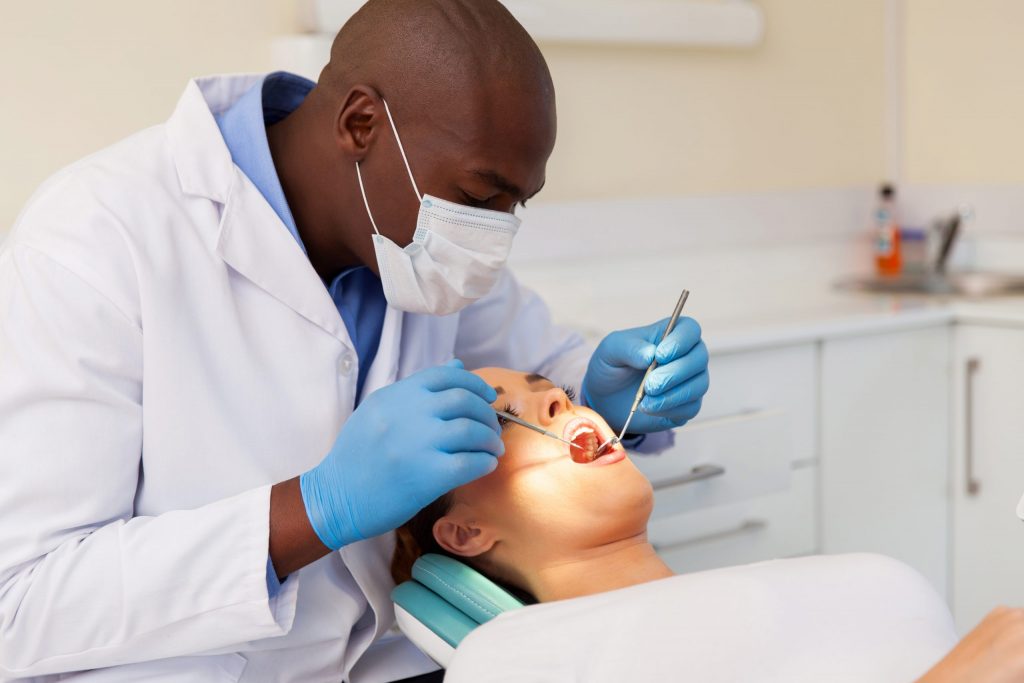Important Dental Treatment Procedures for Preserving Healthy Teeth and Gums
Maintaining optimum oral health is vital for overall health, and comprehending vital dental care procedures is the very first step toward achieving this goal. Normal professional cleansings and oral examinations play a crucial role in the early detection of potential concerns, while everyday methods such as cleaning and flossing are fundamental for combating plaque and food fragments. Nutritional choices dramatically influence the health of gums and teeth. As we discover these treatments and their ramifications, it becomes obvious that overlooking any kind of element might result in unexpected complications. What other factors should be thought about for comprehensive oral care?
Routine Oral Examinations
Normal dental check-ups are essential for preserving ideal dental wellness and stopping possible issues. These appointments normally take place every 6 months and offer multiple functions, including the early detection of dental issues such as tooth cavities, periodontal disease, and oral cancer. By determining these problems at their beginning, individuals can take advantage of much less invasive treatments and boosted end results.

Moreover, regular examinations supply a possibility for dental experts to offer tailored suggestions on oral health methods, dietary selections, and lifestyle adjustments that can enhance general dental health and wellness. Developing a routine of routine exams fosters a positive technique to dental care, encouraging patients to organize their dental health and ultimately bring about a brighter, healthier smile. Neglecting these crucial gos to can lead to extra severe problems, highlighting their significance in preventive dental care.

Specialist Cleansings
An essential component of keeping dental health and wellness is the specialist cleansing done by a dental hygienist. These cleanings, commonly advised every six months, are essential for the avoidance of dental concerns such as tooth cavities and periodontal condition. Same Day Tooth Extraction. During a professional cleansing, the hygienist uses specialized tools to remove plaque and tartar build-up from the teeth and along the gum line, locations that routine cleaning may miss out on
Following this, the hygienist utilizes a scaler to meticulously scuff away hardened plaque. The hygienist may use a fluoride treatment to enhance the teeth and give added security versus decay.
Expert cleansings not only improve the visual appeals of your smile yet additionally substantially add to overall dental wellness. They enable early discovery of potential problems, making it possible for prompt intervention. By prioritizing these cleansings, people can ensure that their oral hygiene routine is matched by specialist treatment, inevitably leading to much healthier gums and teeth.
Daily Brushing Methods
Reliable day-to-day cleaning techniques are vital for preserving ideal dental wellness. Combing your teeth a minimum of twice a day, ideally in the morning and before going to bed, is essential for removing plaque and avoiding tooth cavities. Select a soft-bristled tooth brush that fits easily in your hand and enables easy access to all areas of your mouth.
When brushing, hold the toothbrush at a 45-degree angle to your gums. This position helps to clean not only the teeth but also the gumline, where plaque can build up. Use gentle, round activities as opposed to hostile back-and-forth strokes, which can hurt the gums and enamel. Ensure to clean for a minimum of two minutes, investing equivalent time on each quadrant of your mouth.
Don't forget to comb the internal surface areas of your teeth, in addition to your tongue, to get rid of bacteria and refresh your breath. Change your toothbrush every three to 4 months or sooner if the bristles are torn. In addition, take into consideration making use of fluoride tooth paste to enhance enamel and lower the danger of decay. Developing a constant brushing regimen will dramatically add to the long-lasting health of your gums and teeth.
Reliable Flossing Methods
Flossing is a vital part of a thorough oral health routine, playing a critical function in getting rid of food particles and plaque from locations that a toothbrush can not get to. Effective flossing approaches can significantly improve the health of your teeth and periodontals, avoiding dental caries and gum illness.
To look here start, make use of roughly 18 inches of floss, winding completions around your middle fingers, permitting far better control. Hold the floss snugly between your thumbs and index fingers, carefully leading it between your teeth with a sawing movement. Prevent breaking the floss, as this can create gum tissue damage.
When the floss gets to the gum tissue line, contour it into a C shape against one tooth and slide it underneath the gum tissue line gently, guaranteeing to clean up both sides of the tooth. Repeat this procedure for each and every tooth, using a clean section of floss as you move from one tooth to the next.
It is suggested to floss a minimum of daily, ideally before brushing, to maximize plaque removal. Integrating efficient flossing methods right into your dental health routine will add to general oral health and wellness, making it an important method for preserving healthy teeth and periodontals.
Nutritional Considerations for Oral Health
Various studies demonstrate that nutritional considerations play a critical role in maintaining dental wellness and protecting against oral concerns. A well-balanced diet plan rich in vital nutrients is fundamental for the development and upkeep of healthy and balanced teeth and periodontals. Key minerals and vitamins, such as calcium, vitamin, and phosphorus D, contribute substantially to the strength of tooth enamel and the total honesty of the mouth.
Foods high in anti-oxidants, like vegetables and fruits, enhance gum tissue wellness by minimizing inflammation and combating oxidative stress. Ample hydration is vital; water not only assists in the production of saliva, which counteracts acids and cleans away food particles, however additionally aids in keeping a balanced dental microbiome. Same Day Dental Crown.
Conversely, too much consumption of sugary and acidic foods can result in tooth degeneration and erosion. Limiting these foods, in addition to practicing great oral hygiene, is crucial for dental health. Additionally, integrating foods high in fiber can boost saliva production, which is beneficial for oral wellness. Hence, an alternative technique that consists of mindful dietary options can substantially add to the prevention of dental issues and the promo of total dental well-being.
Final Thought

These consultations normally happen every 6 months and offer numerous functions, consisting of the early discovery of dental troubles such as dental caries, gum tissue disease, and dental cancer.During an examination, an useful site oral expert performs an extensive evaluation of the teeth, periodontals, and bordering oral frameworks.Moreover, routine exams provide a possibility for dental specialists to provide tailored advice Related Site on dental health methods, nutritional options, and way of life modifications that can boost overall dental wellness.In summary, preserving healthy and balanced teeth and gums demands adherence to important oral care treatments. Normal specialist cleanings and oral exams promote very early detection of oral problems and the elimination of plaque and tartar, respectively.